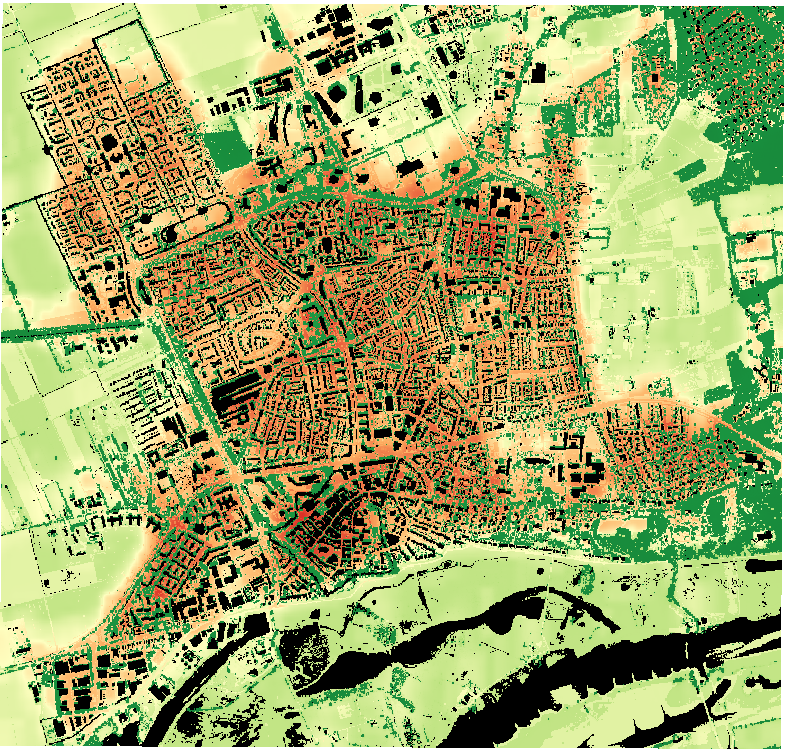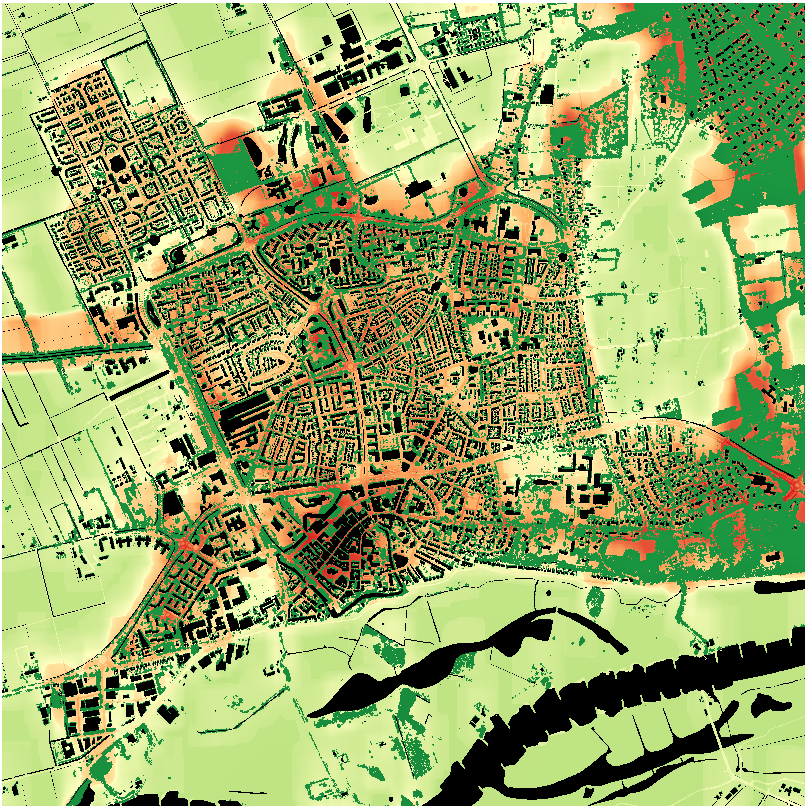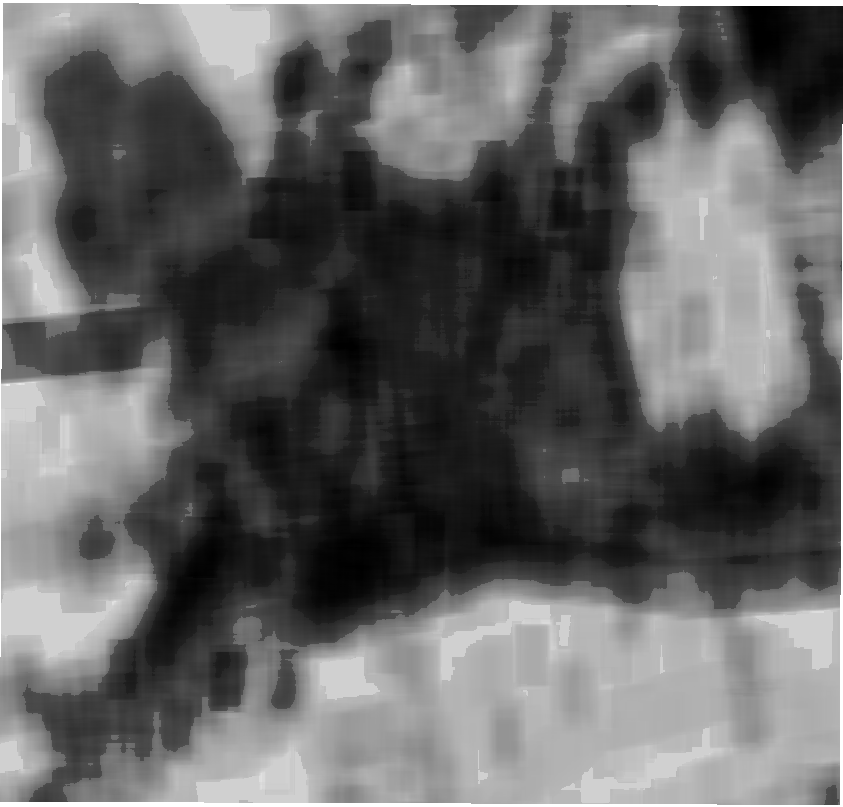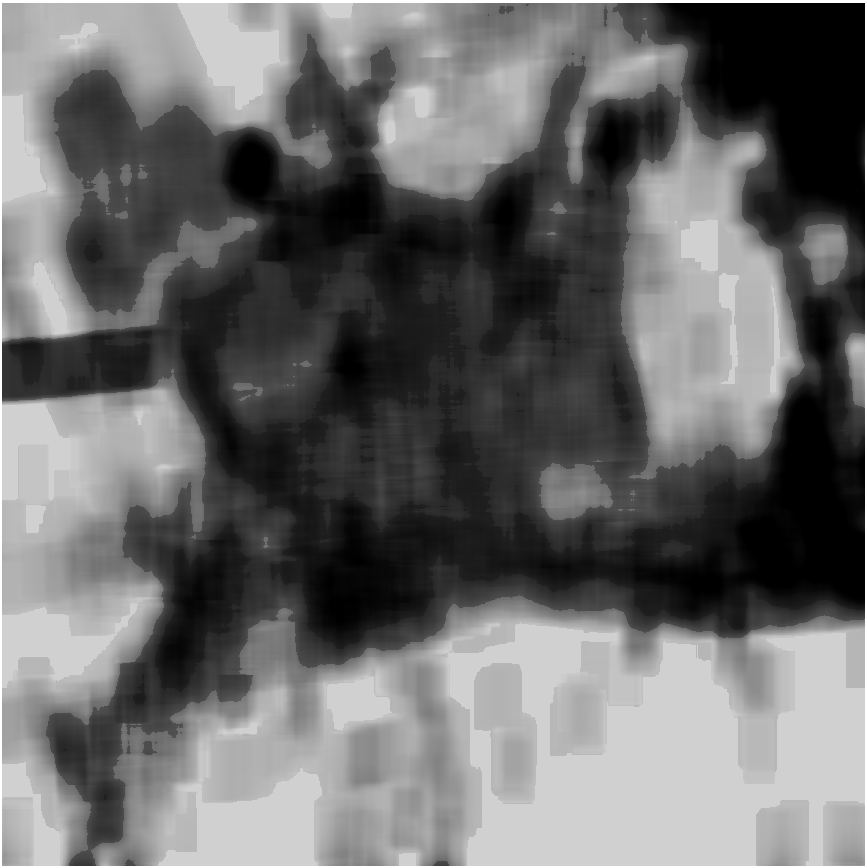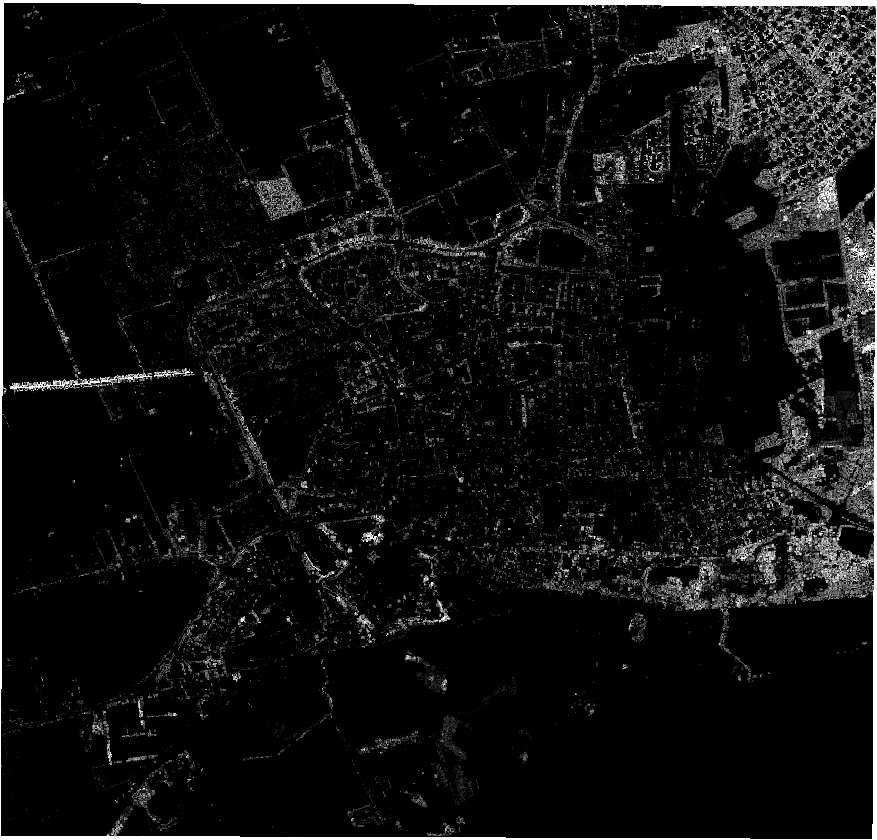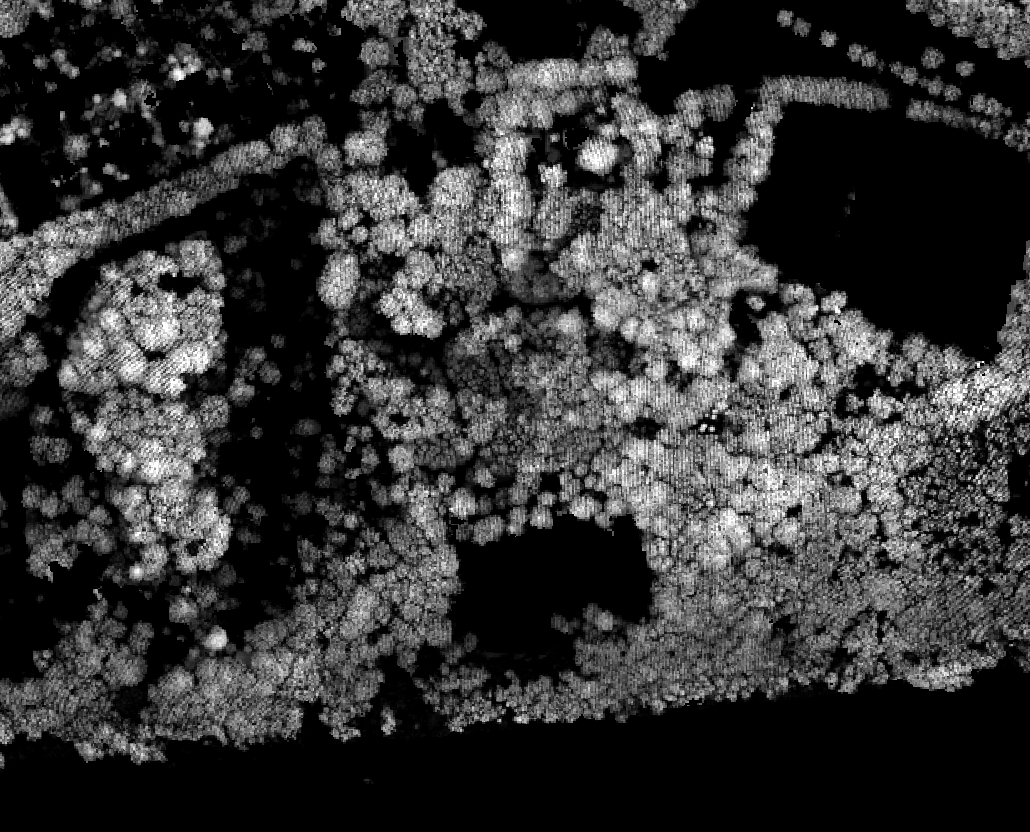Benchmark Wageningen analysis: Difference between revisions
(Created page with "The Wageningen provided and Tygron generated PET overlays be seen below: x500px x500px...") |
No edit summary |
||
| Line 14: | Line 14: | ||
[[File:wind_speedwageningen_2_augustus_2013_12_utc_hva.png|x300px]] [[File:wind_speed_wageningen_2_augustus_2013_12_utc_tygron.png|x300px]][[File:wind_legend.png]] | [[File:wind_speedwageningen_2_augustus_2013_12_utc_hva.png|x300px]] [[File:wind_speed_wageningen_2_augustus_2013_12_utc_tygron.png|x300px]][[File:wind_legend.png]] | ||
===Foliage input generation=== | |||
The foliage input data may be a cause for these differences. The Wageningen PET Test Case contains a tree height polygon data source. Per polygon, the maximum height is stored and the polygon itself represents the crown of the tree. Unfortunately, this results in generally too much foliage height, since the decline of the trees towards the edges of the crown is not taken into account. Having generally more foliage height lead to more shade and more wind reduction than there actually should be. | The foliage input data may be a cause for these differences. The Wageningen PET Test Case contains a tree height polygon data source. Per polygon, the maximum height is stored and the polygon itself represents the crown of the tree. Unfortunately, this results in generally too much foliage height, since the decline of the trees towards the edges of the crown is not taken into account. Having generally more foliage height lead to more shade and more wind reduction than there actually should be. | ||
Revision as of 13:17, 27 September 2019
The Wageningen provided and Tygron generated PET overlays be seen below:
A few differences in the PET results can be explained by differences in input data:
- Foliage height source.
- Wind calculation for areas with a lot of foliage.
- The spatial variation of vegetation, especially in gardens.
- Slight Geometry data version, buildings, parking lots and water present / not present.
Foliage and the effect on wind
The calculated wind speed differs on areas with large amount of trees, as you can see the images below (Tygron wind map is on the right):
Foliage input generation
The foliage input data may be a cause for these differences. The Wageningen PET Test Case contains a tree height polygon data source. Per polygon, the maximum height is stored and the polygon itself represents the crown of the tree. Unfortunately, this results in generally too much foliage height, since the decline of the trees towards the edges of the crown is not taken into account. Having generally more foliage height lead to more shade and more wind reduction than there actually should be.
Therefore, we decided to create a new tree height geotiff, using the tree height polygons as the location of the tree crowns. We manually created a foliage height geotiff by rasterizing the tree height polygons and overlaying this with both the surface and terrain heights. By subtracting these heights, one can obtain an approximated foliage height GeoTiff, as can be seen below.
The generated foliage geotiff may however result in more height variations among the trees, resulting in more frontal foliage surface than should be counted.
More research has to be done to find out what effect this variation of foliage height on wind reduction.
Vegetation fraction spatial variation
The vegetation fraction in the PET Wageningen result has been calculated using the RGB and Infra-red imagery data. In the Tygron engine the vegetation fraction is determined by the buildings , their function and terrains in case no buildings are present.
